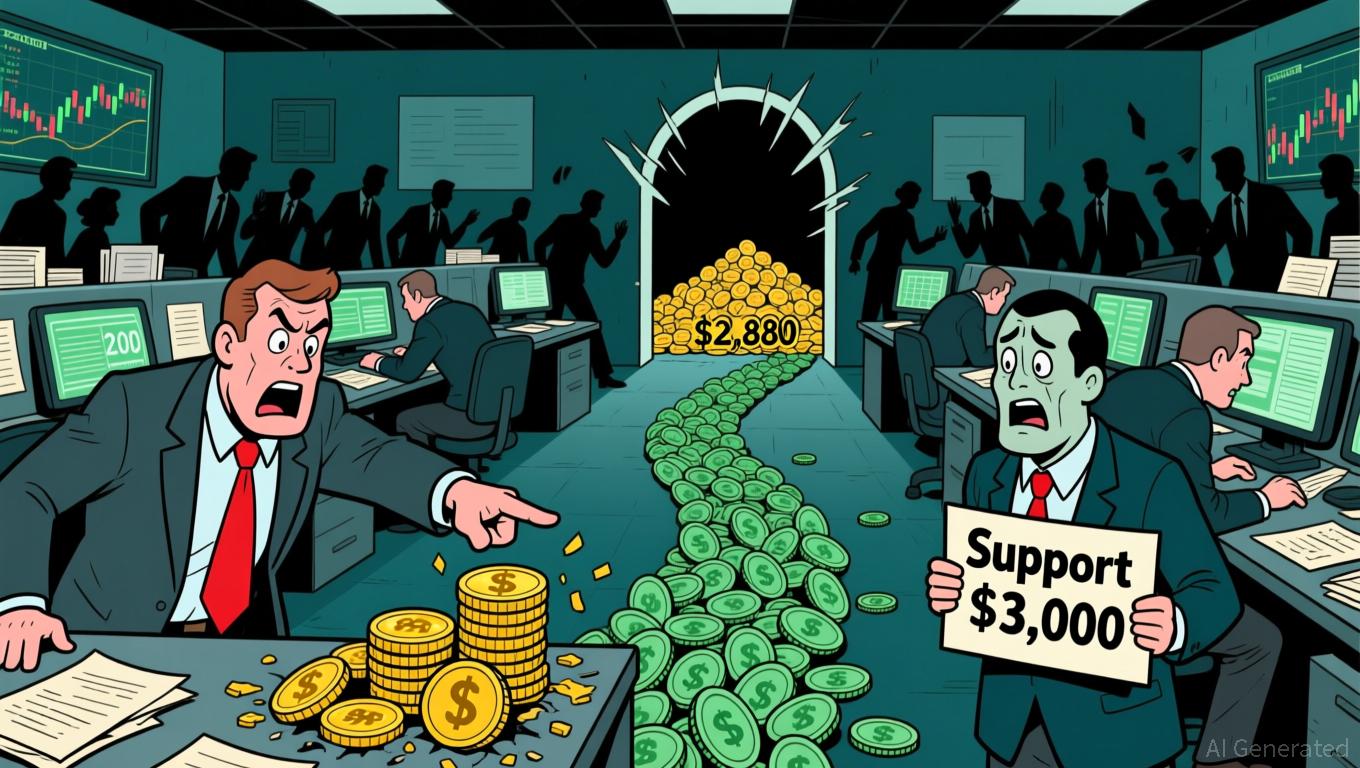The COAI Token Fraud: An Alert for Everyday Cryptocurrency Investors
- COAI token scandal exposes DeFi's systemic risks, causing $116.8M loss and 88% price collapse. - Regulatory ambiguity and unpatched vulnerabilities in DeFi infrastructure enable scams, highlighting audit needs. - Experts advocate AI-driven risk tools and thematic due diligence to address governance gaps and fraud. - Retail investors urged to prioritize audits, KYC/AML compliance, and avoid AI bot scams for self-protection.
Regulatory and Leadership Failures: A Perfect Storm
The collapse of the COAI token was intensified by inconsistent regulatory policies. The U.S. Securities and Exchange Commission (SEC) and Commodity Futures Trading Commission (CFTC) have not yet aligned their approaches to stablecoin classification,
In Southeast Asia, where
Technical Vulnerabilities and the Need for Smart Contract Audits
The COAI token fraud also revealed technical shortcomings in DeFi systems. For example,
Expert Warnings: AI-Driven Risk Management and Thematic Due Diligence
Following the COAI debacle, industry experts are pushing for risk management systems powered by artificial intelligence.
Lessons for Retail Investors: Vigilance in a High-Risk Ecosystem
The COAI token incident offers practical guidance for individual investors:
1. Analyze Tokenomics Carefully: Examine project documentation, team credentials, and community activity.
2. Insist on Smart Contract Audits: Ensure that projects have been independently reviewed by trusted auditors(https://www.bitget.com/news/detail/12560605068422).
3. Be Alert to AI Bot Scams:
4. Emphasize KYC/AML Standards:
Conclusion: A Call for Systemic Change
The COAI token scandal is not an isolated case but reflects deeper, widespread risks within DeFi. Although technological advances continue to fuel growth, the absence of uniform due diligence and clear regulations leaves investors vulnerable. As
Disclaimer: The content of this article solely reflects the author's opinion and does not represent the platform in any capacity. This article is not intended to serve as a reference for making investment decisions.
You may also like
Grayscale Increases Chainlink Holdings Amid Price Drop, Shows Confidence in DeFi’s Prospects
- Grayscale surged LINK holdings to 1.3M tokens, quadrupling over two years despite 50% price drop, signaling long-term DeFi infrastructure bet. - Price decline pushed LINK to critical support level with low Exchange Supply Ratio, suggesting potential stabilization and buying opportunities. - Research highlights Chainlink's role in securing dApps and enabling tokenized assets, with major banks like UBS already adopting its infrastructure. - Grayscale filed a spot LINK ETF (GLNK) for December 2025 launch, m

Ethereum News Update: Ethereum's Downturn Reflects Coordinated Withdrawal from Both Crypto and Traditional Markets
- Ethereum dropped below $3,000 on November 17, mirroring Bitcoin's 3.21% slump to a six-month low amid synchronized crypto-traditional market selloff. - Crypto investment products recorded $2B in outflows, with Ethereum ETFs losing $689M as macroeconomic uncertainty and whale selling intensified pressure. - Technical indicators show ETH breaking below $3,200 and key trend lines, with $3,000 support level at risk if $3,280 resistance fails. - Ark Invest's $39.6M crypto-linked stock purchases contrasted mar

Bitcoin News Update: Cryptocurrency Companies Turn to Preferred Shares for Bitcoin Purchases, Sidestepping Debt and Equity Dilution
- Metaplanet issues $150M in preferred stock to expand Bitcoin holdings, avoiding equity dilution and debt. - Strategy adds 8,178 BTC ($835.6M) via similar preferred shares, reflecting institutional preference for capital-efficient crypto financing. - JEXAI's AI-blockchain platform optimizes energy use and asset allocation, lowering barriers for institutional Bitcoin adoption. - Market turbulence, like a $5.5M liquidation on HyperLiquid, highlights risks driving demand for stable, long-term capital strateg

HSBC’s Tokenized Deposits: Unlocking the $16 Trillion RWA Market to Satisfy Investor Needs
- HSBC plans to launch tokenized deposits in the U.S. and UAE by 2026, targeting high-net-worth clients amid evolving banking models. - The move aligns with a $16.1T RWA market growth projection and FDIC guidance on tokenized deposits, reflecting industry-wide regulatory shifts. - Client demand for alternatives has doubled, with 59% of entrepreneurs diversifying globally, positioning tokenization as a key wealth management tool. - Industry forecasts suggest RWA tokenization could unlock $400T in traditiona
